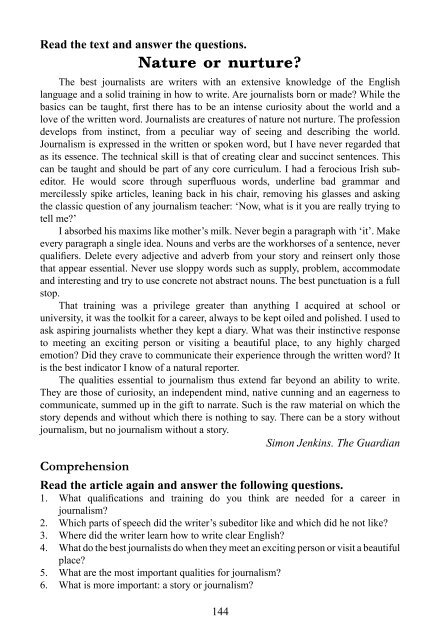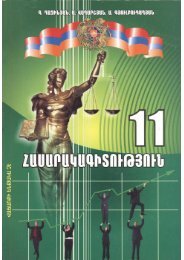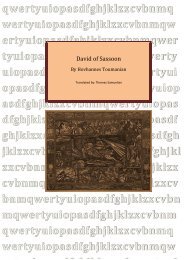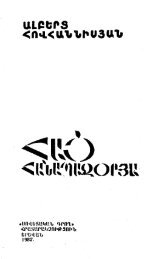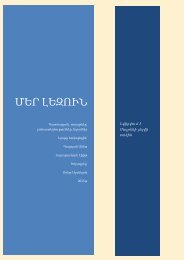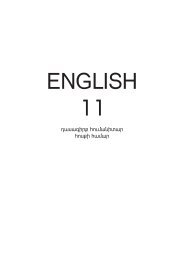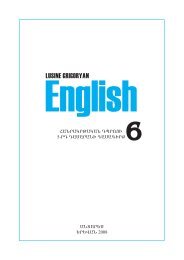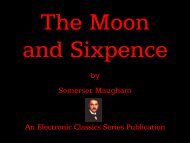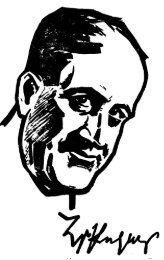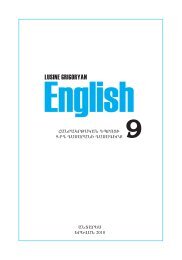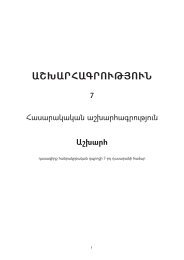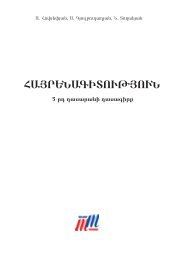Focus on Words
Focus on Words
Focus on Words
You also want an ePaper? Increase the reach of your titles
YUMPU automatically turns print PDFs into web optimized ePapers that Google loves.
Read the text and answer the questi<strong>on</strong>s.<br />
Nature or nurture?<br />
The best journalists are writers with an extensive knowledge of the English<br />
language and a solid training in how to write. Are journalists born or made? While the<br />
basics can be taught, first there has to be an intense curiosity about the world and a<br />
love of the written word. Journalists are creatures of nature not nurture. The professi<strong>on</strong><br />
develops from instinct, from a peculiar way of seeing and describing the world.<br />
Journalism is expressed in the written or spoken word, but I have never regarded that<br />
as its essence. The technical skill is that of creating clear and succinct sentences. This<br />
can be taught and should be part of any core curriculum. I had a ferocious Irish subeditor.<br />
He would score through superfluous words, underline bad grammar and<br />
mercilessly spike articles, leaning back in his chair, removing his glasses and asking<br />
the classic questi<strong>on</strong> of any journalism teacher: ‘Now, what is it you are really trying to<br />
tell me?’<br />
I absorbed his maxims like mother’s milk. Never begin a paragraph with ‘it’. Make<br />
every paragraph a single idea. Nouns and verbs are the workhorses of a sentence, never<br />
qualifiers. Delete every adjective and adverb from your story and reinsert <strong>on</strong>ly those<br />
that appear essential. Never use sloppy words such as supply, problem, accommodate<br />
and interesting and try to use c<strong>on</strong>crete not abstract nouns. The best punctuati<strong>on</strong> is a full<br />
stop.<br />
That training was a privilege greater than anything I acquired at school or<br />
university, it was the toolkit for a career, always to be kept oiled and polished. I used to<br />
ask aspiring journalists whether they kept a diary. What was their instinctive resp<strong>on</strong>se<br />
to meeting an exciting pers<strong>on</strong> or visiting a beautiful place, to any highly charged<br />
emoti<strong>on</strong>? Did they crave to communicate their experience through the written word? It<br />
is the best indicator I know of a natural reporter.<br />
The qualities essential to journalism thus extend far bey<strong>on</strong>d an ability to write.<br />
They are those of curiosity, an independent mind, native cunning and an eagerness to<br />
communicate, summed up in the gift to narrate. Such is the raw material <strong>on</strong> which the<br />
story depends and without which there is nothing to say. There can be a story without<br />
journalism, but no journalism without a story.<br />
Sim<strong>on</strong> Jenkins. The Guardian<br />
Comprehensi<strong>on</strong><br />
Read the article again and answer the following questi<strong>on</strong>s.<br />
1. What qualificati<strong>on</strong>s and training do you think are needed for a career in<br />
journalism?<br />
2. Which parts of speech did the writer’s sub editor like and which did he not like?<br />
3. Where did the writer learn how to write clear English?<br />
4. What do the best journalists do when they meet an exciting pers<strong>on</strong> or visit a beautiful<br />
place?<br />
5. What are the most important qualities for journalism?<br />
6. What is more important: a story or journalism?<br />
144


